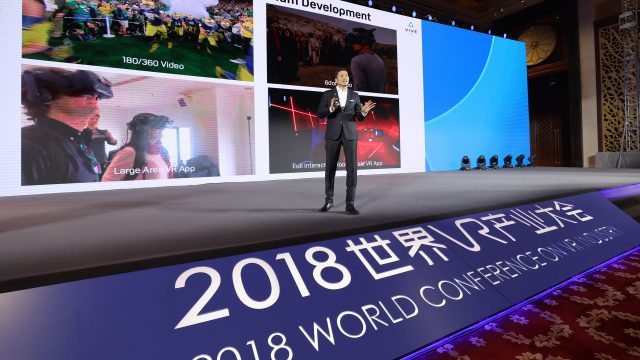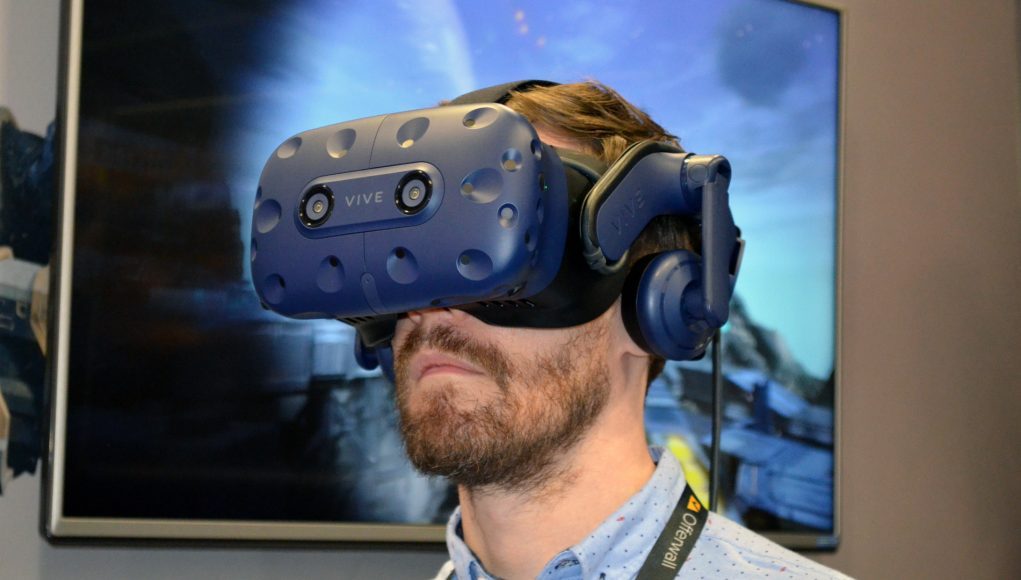Today at the the World Conference on VR Industry in China, HTC announced plans to bring hand & finger tracking to Vive Pro via the headset’s front-facing cameras.
Back in April HTC launched new tools to help developers take advantage of the Vive Pro’s largely unused front-facing cameras. Now it seems the company plans to double down on that by adding hand and finger tracking that works “natively” on the headset.
On the Vive Pro today, the system can understand the position of a user’s hands thanks to a pair of controllers which are tracked with external beacons. This new capability, which HTC demonstrated today at the WCVRI conference, enables hand-tracking without the need of the need of externally tracked controllers. HTC also indicates that the capability can track individual finger movements too.
Other companies like Leap Motion have developed similar technologies, employing computer vision processing to understand the position and movement of a user’s hands without any special gloves or attachments.

While highly interactive VR content benefits from the binary input capabilities and haptic feedback of controllers, hand tracking can sometimes be more immersive and intuitive, and may work well for certain situations where nothing more than ‘casual’ input is necessary.
HTC says that developer tools for the new feature will be made available soon to registered Viveport developers.







